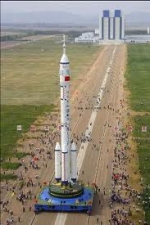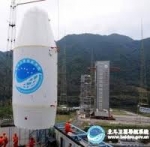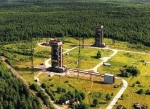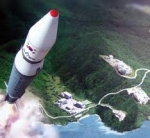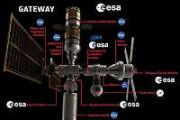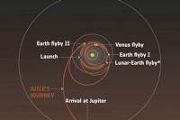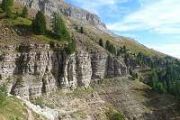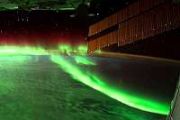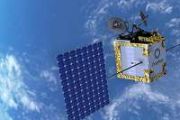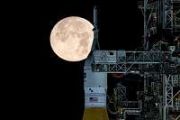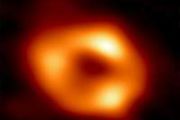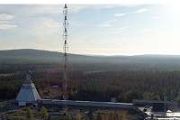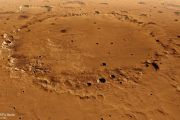Displaying items by tag: launch site
Wenchang Satellite Launch Center (WSLC)
Wenchang Satellite Launch Center (WSLC), located near Wenchang on the north-east coast of Hainan Island, is a former sub-orbital test center currently under upgrade (Nov. 2012).
It is the fourth and southernmost space vehicle launch facility (spaceport) of China. It has been specially selected for its low latitude, which is only 19 degrees north of the equator, which will allow for a substantial increase in payload, necessary for the future manned program, space station and deep space exploration program. Furthermore, it will be capable of launching the new heavy lift Long March 5 booster currently under development.
Unlike the Space Centers on the mainland whose rail tracks are too narrow to transport the new five meter core boosters, Wenchang can use its sea port for deliveries.
Xichang Satellite Launch Center (XSLC)
The Xichang Satellite Launch Center (XSLC) is a China space vehicle launch facility (spaceport) approximately 64 km northwest of Xichang, in Sichuan, China.
The facility became operational in 1984 and is primarily used to launch powerful thrust rockets and geostationary communications and weather satellites. It is notable as the site of Sino-European space cooperation, with the launch of the first of two Double Star scientific satellites in December 2003.
Baikonur Cosmodrome
The Baikonur Cosmodrome, also called Tyuratam, is a very large space launch facility.
It is located in the desert steppe of Kazakhstan, about 200 kilometres east of the Aral Sea. It is leased by the Kazakh government to Russia (as of 2012 : until 2050) and is managed jointly by the Russian Federal Space Agency (ROSCOSMOS) and the Russian Space Forces. The shape of the area leased is an ellipse, measuring 90 kilometres east-west by 85 kilometres north-south, with the cosmodrome at the centre. It was originally built by the Soviet Union in the late 1950s as the base of operations for its space program.
Plesetsk Cosmodrome
Plesetsk Cosmodrome (Russian: Космодром «Плесецк») is a Russian spaceport, located in Arkhangelsk Oblast, about 800 km north of Moscow and approximately 200 km south of Arkhangelsk.
Plesetsk is used especially for military satellites placed into high inclination and polar orbits since the range for falling debris is clear to the north which is largely uninhabited Arctic and polar terrain. It is situated in a region of taiga, or flat terrain with boreal pine forests. The Soyuz rocket, Cosmos-3M, Rockot, and Tsyklon are launched from the Plesetsk Cosmodrome. The heavy Proton and Zenit rockets can only be land-launched from Baikonur (Zenit may also be launched at sea).
Naro Space Center
Naro Space Center is a South Korean spaceport in Goheung County, South Jeolla operated by the state-run Korea Aerospace Research Institute.
The spaceport is located about 485 km (300 mi) south of Seoul. It includes a launch pad, a control tower, rocket assembly and test facilities, facilities for satellite control testing and assembly, a media center, an electric power station, a space experience hall and a landing field.
The first launch, initially planned for 19 August 2009, was performed on 25 August 2009 using a Russo-South Korean Naro-1 rocket, but failed to reach the desired orbit. Another rocket launch from Naro was planned for May 2010, but delays pushed the launch to June. On June 10th, 2010, this second attempt also ended in failure when the rocket lost communications 137 seconds after launch. The South Korean science minister Ahn Byung-man later told reporters that the rocket was believed to have exploded.
CNES - Guiana Space Centre
The Guiana Space Centre (French: Centre Spatial Guyanais - CSG) is a French spaceport near Kourou in French Guiana.
Operational since 1968, it is particularly suitable as a location for a spaceport due to its proximity to the equator, and that launches are in a favourable direction over water. The European Space Agency (ESA), the French space agency CNES, and the commercial Arianespace company conduct launches from Kourou. This is the spaceport used to by ESA to send supplies to the International Space Station.
NASA - Kennedy Space Center
The John F. Kennedy Space Center (KSC) is the NASA installation that has been the launch site for every United States human space flight since 1968. Although such flights are currently on hiatus, KSC continues to manage and operate unmanned rocket launch facilities for America's civilian space program from three pads at the adjoining Cape Canaveral Air Force Station. Its iconic Vehicle Assembly Building (VAB) is the fourth-largest structure in the world by volume and was the largest when completed in 1965.

